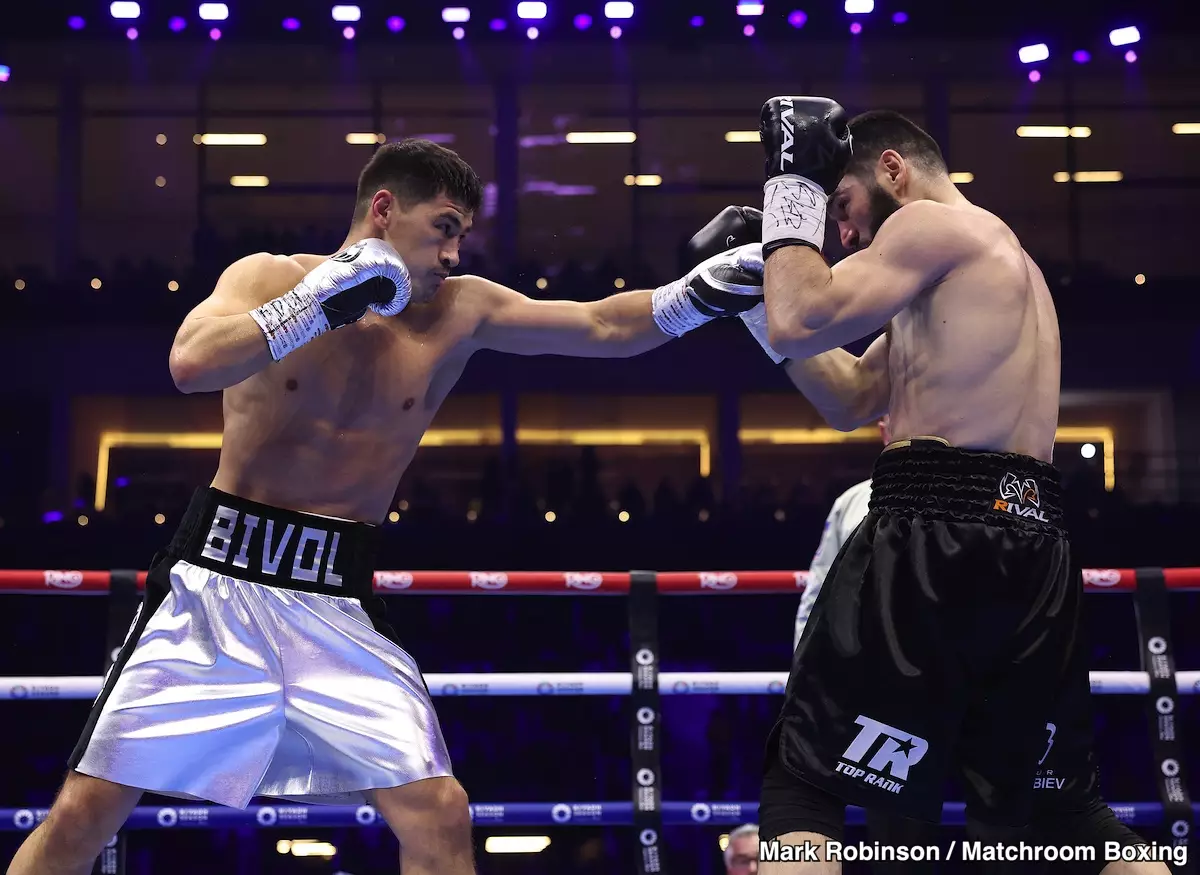The rematch between Dmitry Bivol and Artur Beterbiev transpired on a significant platform at the Kingdom Arena in Riyadh, Saudi Arabia, igniting expectations of an electrifying showdown. Bivol exited the ring with a narrow majority decision victory, marking his redemption after a prior defeat. However, the bout itself was met with mixed feelings, as it diverged drastically from the action-fueled encounters fight fans had anticipated.
Bivol’s strategy in this contest leaned heavily toward defense and evasion. He implemented a slick, mobile fighting style that involved moving laterally and maintaining distance from Beterbiev’s powerful punches. This evasive action was effective for securing the win, but it drew criticism for lacking excitement and engagement. In a sport where fans crave ferocity and intensity, Bivol’s choices seemed calculated to stifle rather than spark action, leading to a near-silent crowd, an unexpected outcome that belied the stakes the fighters were navigating.
While it’s clear that Bivol’s approach achieved the desired result—securing the judges’ favor—it raises questions about the entertainment value of such tactics and their long-term implications for his career. Although stylistic choices are valid, the degree to which they satisfy the audience should also hold significance in a competitive sport.
The scoring of the match revealed a contentious landscape where opinions about the fight’s flow diverged. With scores reading 114-114, 116-112, and 115-113, there were allegations of inconsistency among the judges—where one saw merit in Bivol’s control, others saw potential rounds won by Beterbiev. Many analysts shared the belief that Beterbiev had the edge in several rounds, casting doubt on the integrity of the outcome.
Moreover, the atmosphere surrounding the fight was complicated by the prospect of a potential trilogy, as discussed by prominent figures in the industry. This backdrop introduced an intriguing layer to the rematch—a narrative that sometimes eclipses the necessity for fairness in competition.
Despite the contentious nature of the match, there emerged a silver lining for both fighters. Bivol’s victory positions him favorably for bigger promotions and lucrative encounters down the line, with the anticipated trilogy providing fertile ground for both fighters to operate within the spotlight. Oddly enough, Beterbiev, who lost this bout, may find his own career revitalized through the allure of a highly marketable third match; the public’s thirst for clarity from their previous encounters could translate into considerable financial benefit.
While Bivol’s victory may be celebrated by his team and supporters, the fight’s failure to captivate an audience speaks to a deeper concern within boxing. The balance between effective strategy and audience engagement must be navigated carefully. As both fighters look ahead, the next chapters in their careers come laden with expectations. Fans will be eager to see if the potential trilogy serves their longing for action, or if it’ll be just another match defined by tactical evasion rather than memorable moments.

